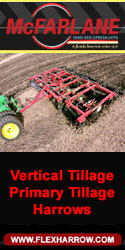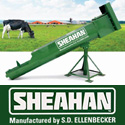 |
 |

|
|
|
New York Ag News Headlines |
 |
Invasive Gobies May Change Oneida Lake's Complexion - Again
New York Ag Connection - 08/16/2017
Oneida Lake, a kissing cousin to New York's Finger Lakes, may soon get an environmental makeover due to another in a series of invasive species bringing havoc to the body's ecosystem and disturbing its recreational waters.
Invasive round gobies, bottom-feeder fish from Eurasia, appear to diminish zebra and quagga mussel populations and literally cloud the waters of the 80-square-mile lake northeast of Syracuse, New York, according to Stephanie Roh '19, a Cornell
undergraduate. Roh will present her research at the Ecological Society of America's annual meeting in Portland, Oregon, Aug. 8.
"In the past two years, we have observed a decline in total mussel biomass in Oneida Lake -- likely because of the rapid growth of the goby population," said Roh. "If these trends continue, we expect to see lakewide ecological changes such as decreased water
clarity very soon."
Staff at the Cornell Biological Field Station at Oneida's Shackelton Point observe the lake's changing ecosystem to track the effects of invasive species and climate change.
Roh, under the supervision of Lars Rudstam, professor of natural resources, examined the waters off Shackelton Point, diving to collect rocks with small mussels on them. After laboratory work, Roh created underwater traps, each containing zebra and quagga
mussels, to allow underwater predators to freely swim inside. She retrieved the traps two months later.
The zebra mussel mortality rate was 20 percent higher than the quagga's, she explained. Smaller mussels were consumed more than larger ones, suggesting that round gobies prefer the zebra mussels. "If round gobies have a stronger impact on zebra mussels than
the quagga mussels, the invasion of round gobies will hasten the zebra mussel decline, allowing the quagga to dominate," Roh said.
Invasive species are nothing new for Oneida Lake. Zebra and quagga mussels themselves are invaders that significantly modify their environment by providing water clarity, transferring resources to the sedimentary lake floor, reducing chlorophyll concentrations
and creating a food source for fish. But the invasive gobies become gluttonous gorgers, disrupting the lake's entire ecosystem.
While studying gobies' impact, Roh examined the growth differential between zebra and quagga mussels. Zebra mussels showed slower growth rates in deep waters, as the quagga are better adapted to Oneida's softer lake sediment.
Impacting the lake's ecosystem can be complex. Roh notes that while gobies feast on bass eggs, they increase food availability for smallmouth bass, walleye and yellow perch -- increasing catch weights for sport fishers. But, the feasting fish may not be as hungry
for bait, so catch rates can disappointing.
Roh, who participates in Cornell's Doris Duke Charitable Foundation scholarship program, will present her poster, "Zebra and Quagga Mussel Growth Rates and Mortality in Oneida Lake," at the meeting in Portland.
|
 |


|
 |
|
Copyright © 2024 - Farms.com. All Rights Reserved. |
 |
|